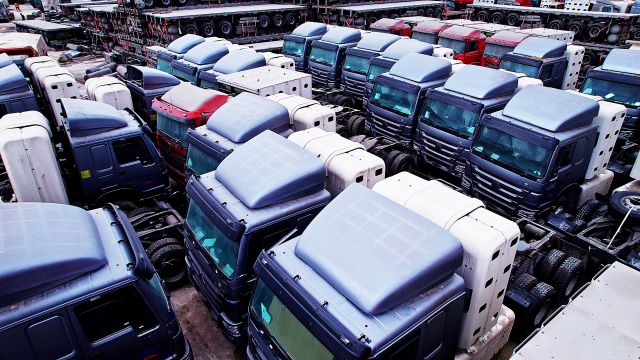As part of its bold sustainability agenda aimed at reducing greenhouse gas emissions and strengthening energy security, Africa’s leading cement manufacturer, Dangote Cement Plc, has revealed that it has co-processed over 1.5 million tonnes of alternative fuels in the past four years — a milestone that significantly lowers its carbon footprint.
The initiative underscores the company’s commitment to cutting carbon emissions, enhancing energy efficiency, and setting new standards for sustainable industrialization across the continent.
Speaking to a global audience at the Africa CemTrade Summit held recently in Accra, Ghana, the Group Managing Director of Dangote Cement, Mr. Arvind Pathak, disclosed that since 2021, when the company embarked on energy diversification, it has successfully deployed 15 alternative fuel systems across its plants. These systems have achieved up to 40 percent thermal substitution in operations across sub-Saharan Africa — particularly in Senegal, Zambia, and South Africa.
Pathak, who spoke on the theme “Sustainable Innovation in the Sub-Saharan Africa Cement Distribution Value Chain,” explained that through the adoption of alternative fuels, the company has been converting industrial, agricultural, and municipal wastes into energy. The initiative forms part of Dangote Cement’s broader decarbonization target of reducing carbon emissions by 20 percent by 2030.
He emphasized that with operations in 11 countries and a production capacity of 55 million tonnes per annum, Dangote Cement is driving a transformative shift toward sustainability in Africa’s cement sector—where environmental stewardship and profitability go hand in hand. “Sustainability sits at the core of our business model, influencing every aspect from production to logistics,” he said.
Central to this transition is the company’s massive investment in compressed natural gas (CNG) logistics. Pathak disclosed that Dangote Cement has already acquired over 3,000 CNG trucks and 1,000 dual-fuel vehicles, significantly reducing both emissions and transport costs. The company targets a fully CNG-powered fleet in Nigeria by 2026, with the goal of cutting carbon emissions per energy unit by 29 percent.
The company’s sustainability drive is further supported by its ongoing digital transformation, which has introduced innovations such as the Distributor Management System (DMS), Transport Management System (TMS), and Electronic Proof of Delivery (e-POD)—tools that enhance transparency, optimize routes, and boost supply chain efficiency.
According to Pathak, Dangote Cement has mapped more than 65,000 retail outlets in Nigeria and continues to expand along key regional trade corridors. Through its Customer Truck Empowerment Scheme (CTES), the company has distributed over 4,000 trucks to transport partners, creating jobs and improving the reliability of cement delivery.
In 2024 alone, Dangote Cement invested over ₦12.4 billion in community development projects across its host countries — a fourfold increase from the previous year. The projects cut across education, healthcare, infrastructure, and youth empowerment.
“As we continue to invest in low-carbon operations and innovative technologies, Dangote Cement is setting a benchmark for sustainable industrialization across Africa,” Pathak affirmed.
He added: “We are reaffirming our commitment to innovation and responsible growth. Sustainability has never been an afterthought for us; it is central to how we grow, innovate, and operate. For Africa’s industrial future to remain viable, sustainability must make economic sense. Our strategy ensures profitability while protecting the planet.”
Over the past two decades, Dangote Cement has evolved from a local producer into a continental leader, combining scale with a deliberate shift toward lower-carbon operations. Pathak noted that the company’s investments in process optimization, cleaner fuels, and advanced energy systems are helping to reduce waste, enhance efficiency, and build competitiveness.
“We recognized early on that sustainability would shape the future of manufacturing,” he said. “We are proving that economic performance and climate responsibility can move together.”
Dangote Cement also plays an active role in global and regional sustainability partnerships as a founding member of the Global Cement and Concrete Association (GCCA) and a partner of the United Cities and Local Governments of Africa (UCLG Africa). The partnerships promote low-carbon cement standards, including the Limestone Calcined Clay Cement (LC3) initiative.
In her remarks, Oyekemi Oyelola, Dangote Cement’s Deputy Head of Sustainability, said the company’s model demonstrates that industrial progress and environmental responsibility can coexist.
“We see a future where Africa’s cement industry becomes a global benchmark for sustainable industrialization,” she said. “Our mission is to ensure Dangote Cement leads that transformation — driving innovation, creating value, and helping Africa build not only stronger structures but a stronger, greener future.”


